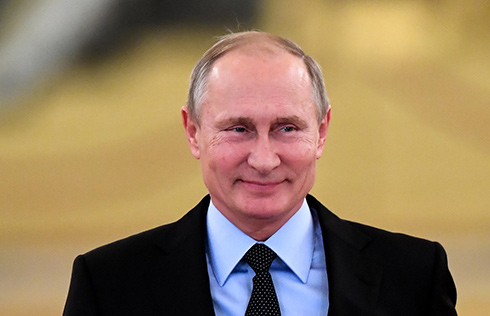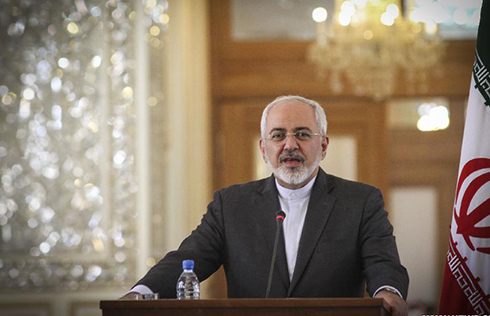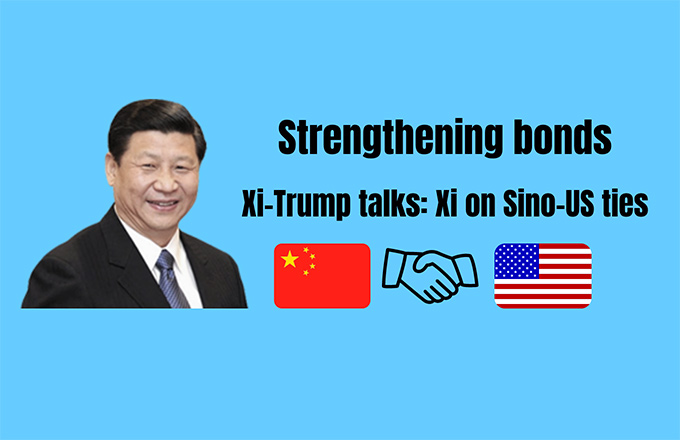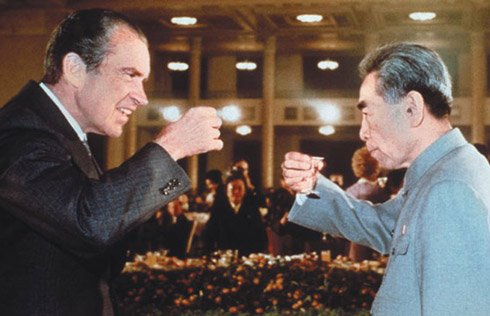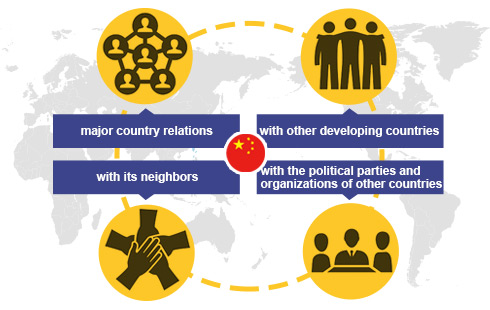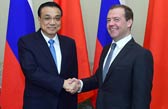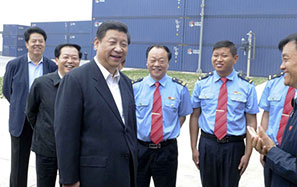Mutual understanding key to deeper ties
|
Visitors talk with an intelligent robot designed by Alibaba Group at an industry forum in Detroit, the United States. Wang Ping / Xinhua |
Educating companies, states and colleges how to link with their counterparts, investment and the market in China is top of the agenda
Sourcing opportunities in the realm of business and education for both United States and Chinese entities is what Sean Stein, the arriving US consul general in Shanghai, has identified as his priorities.
With regard to Washington sharpening its focus on trade imbalances with major countries, including China, Stein is hoping to solve this problem by encouraging more US citizens to come to China to invest.
The veteran diplomat once served in the US consulates in Shenyang, Liaoning province and Chengdu, Sichuan province.

He said he will strive to be "an effective bridge" in helping strengthen bilateral ties.
During his first media briefing on Aug 14, Stein noted that Shanghai has played a key role in Sino-US relations throughout history.
He said that his top priority would be to reach out to US states that have yet to establish a presence in Shanghai and its surrounding areas, and find out what they need to gain a foothold in one of China's most affluent regions.
Interests from different states may vary, Stein noted, with some shooting for investment projects and others aiming to attract more Chinese students to study in US universities.
Also in the pipeline is a string of planned visits to capitals of surrounding provinces, and meetings with government officials and local business representatives. Stein said it is important that US parties lend a listening ear and find out the hopes and needs of their Chinese counterparts.
"I need to understand the situation here because only by having a relationship that helps both sides can we really move things forward," he said.
The US was the top export destination and the second-largest trading partner for Shanghai in the first four months of this year.
Official data showed that the trade volume between the two surged 18.4 percent year-on-year to hit 321.2 billion yuan ($48.6 billion) within this period.
Interactions between players in both countries' private sectors have been robust too.
In June, Chinese internet titan Alibaba Group hosted an investment summit aimed at attracting US businesses to its e-commerce platforms and vowed to create 1 million jobs in the US within five years.
Shanghai is home to the largest US business community outside of the country, according to the American Chamber of Commerce in Shanghai.
The association said that its 1,600 member companies located in Shanghai and neighboring Zhejiang and Jiangsu provinces have access to high-quality business resources and relationship-building opportunities that help them to thrive in China.
To further boost business connections, Stein said he would draw on the experiences gained during his term at the Shenyang consulate from 2010 to 2013.
During this period, he worked with various US states to attract more than $1 billion in Chinese investments and introduced dozens of US firms to the Chinese market. On the personal front, having the opportunity to oversee the Shanghai consulate has evoked a sense of nostalgia in him.
After all, Shanghai was the very first Chinese city that Stein arrived in two decades ago. Stein has even made it a point to visit the Peace Hotel - the place he stayed during that first visit - every time he is in Shanghai.
"I am amazed when I see how the hotel has transformed over time. The modernization of the hotel can be said to be a reflection of the progress of modern Shanghai," he said.
Stein said that he has been impressed with other aspects of present-day Shanghai, such as the digital payment landscape. He recalled having trouble finding currency-exchange counters in the 1990s. Today, he said he needs to learn how to use mobile payment methods such as Alipay and WeChat Pay in order to pay for brunch with his wife and three children.
hewei@chinadaily.com.cn







